Science & Society
Sign up for our newsletter
We summarize the week's scientific breakthroughs every Thursday.
-
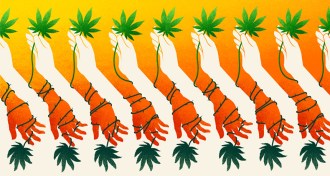 Neuroscience
NeuroscienceLegalization trend forces review of marijuana’s dangers
Marijuana legalization advocates tout pot’s medicinal benefits and low addictiveness, while critics point to its neurological dangers. Research shows that the reality is somewhere in the middle.
-
 Science & Society
Science & SocietyStem cell scientist reportedly agrees to retract controversial paper
Japanese stem cell scientist Haruko Obokata has agreed to retract one of the Jan. 30 Nature papers on STAP cells.
-
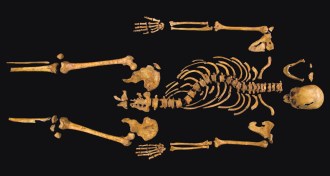 Anthropology
AnthropologyRichard III to be reburied in Leicester Cathedral
The remains of Richard III will be reburied in Leicester, a British court ruled on May 23.
-
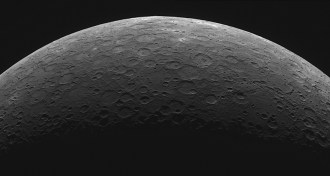 Science & Society
Science & SocietyTrust in gravity isn’t always the best astronomy policy
Historical episodes involving Neptune, Mercury and gravity have implications for today’s dark matter and dark energy mysteries.
-
 Science & Society
Science & SocietyCancer research scores big at Intel ISEF
An innovative statistical analysis of cancer-promoting genes earned a 15-year-old the top prize — and $75,000 — at the Intel International Science and Engineering Fair 2014.
By Sid Perkins -
 Science & Society
Science & SocietyOne of the best ways for kids to learn science: by doing it
A biodegradable Band-Aid. A low-cost, ultrasonic guide to parallel parking. A reinvention of the toilet. These were among the nearly 1,400 science fair projects on display at the 2014 Intel International Science and Engineering Fair. Science News’ parent organization, the Society for Science & the Public, has run the annual event since 1950.
By Eva Emerson -
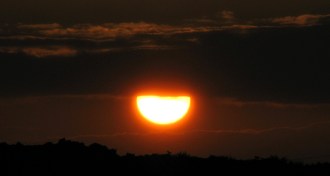 Science & Society
Science & SocietyTop 10 things everybody should know about science
Much of scientific knowledge can be condensed into a few basic principles that every educated person should know.
-
 Health & Medicine
Health & MedicineMassachusetts insurance mandate lowers death rate
Since “Romneycare” was phased in, mortality fell by 2.9 percent.
By Nathan Seppa -
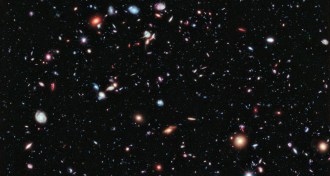 Science & Society
Science & SocietyPolls don’t identify the real science education problem
Concerns that Americans do poorly when quizzed on factual scientific knowledge don’t address deeper issues of scientific understanding.
-
 Science & Society
Science & SocietyAnti-leukemia vaccine reported hope of future
Fifty years ago, Science News Letter reported on the promise of a vaccine to prevent leukemia. No preventive vaccine has come to pass, but leukemia vaccines as treatments has yielded promising results.
-
 Science & Society
Science & SocietyStudents retain information better with pens than laptops
Compared with typing on a laptop, writing notes by hand may lead to deeper understanding of lecture material.
-
 Quantum Physics
Quantum PhysicsShor’s code-breaking algorithm inspired reflections on quantum information
Twenty years ago, physicists met in Santa Fe to explore the ramifications of quantum information.